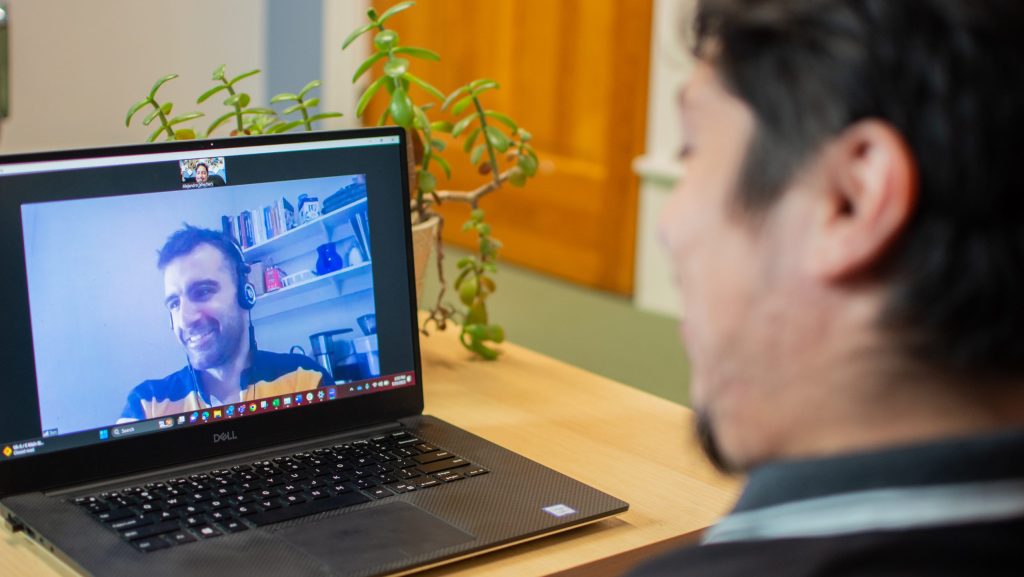Telehealth can help in connecting patients of all different backgrounds to essential services, but one critical barrier that exists is accessing care for patients with Limited English Proficiency (LEP). Identifying solutions can be challenging but two free and charitable clinics in Richmond have identified ways to get care to these individuals.

At CrossOver Healthcare Ministry in Central Virginia, 80% of patients identify that English is not their primary/preferred language, according to the clinic’s latest annual report. Schliqua Thompson, Behavioral Program Coordinator for CrossOver has experience in providing care to patients with LEP and has helped the clinic overcome challenges.
“As much as possible, a patient who receives virtual care should be receiving the same service as if they were in person,” Thompson said. “There are things we as providers and health care systems need to learn and adjust to be able to do so.”
Demand for Bilingual Staff and Volunteers
A significant percentage of CrossOver’s staff is bilingual, including most support staff who are often the first point of contact for patients who don’t speak English. This allows an easier transition as patients navigate their care needs.
At Health Brigade Free Clinic in Richmond, Mental Health Counselor Paula Schoenau’s background as a native of Brazil and her trilingual fluency positions her at the forefront of care for patients who are Latin or Hispanic.

“Over two thirds of our patient population at the clinic is not proficient in English,” said Schoenau. “It’s been a challenge to find Spanish and Portuguese speaking providers. I’m the only one.”
CrossOver and Health Brigade also partner with a first-of-its-kind statewide program, the Virginia Telemental Health Initiative (VTMHI), to expand referral services for patients in need of mental health care services. Like these clinics, VTMHI relies on volunteer multi-lingual providers.
If you are a behavioral or mental health provider interested in volunteering through VTMHI to serve patients in Virginia without insurance, learn more here.
Best Practices for Implementing Interpreter Services
When staff and volunteers can’t keep up with the demand for patients with LEP, interpretation services can serve as a solution. CrossOver works with many volunteers and leverages partnerships with colleges like Randolph-Macon, Virginia Commonwealth University, and University of Richmond, to recruit students each semester to translate on site. The clinic also works with a preferred volunteer interpreter service. These services allow for access to video and telephonic interpreters of all different languages as needed.
“When working with an interpreter, it’s important to provide clear instructions beforehand,” said Thompson. “We often go over the importance of translating directly without added context – especially during cognitive assessments. A small interjection to explain something further can negatively impact the entire appointment.”
Having enough multi-lingual staff, volunteers, and interpretation services aid in providing care to LEP populations but are not the only things to keep in mind.
Cultural Humility is Key
“The larger picture here really is about cultural competency and understanding who you [as a provider] are serving,” said Thompson. “This means not only based on the service a patient needs but being knowledgeable about their experiences and background.”
Patients with LEP come from different situations, including those seeking asylum, individuals who may be second or third generation citizens, and some who can’t read or write in their native language. It is important to take the time to understand these patient populations to be able to design the best services for them.
Many stigmas also exist among different cultures.
“For many Hispanic or Latin cultures, mental health services can be a foreign concept with stigma and family pressure being factors for not receiving mental health care,” said Schoenau.
And many of these social stigmas exist in rural populations of Virginia and beyond. (Read tips for breaking stigmas around mental health care.)
“We have very similar issues with our Arabic speaking patients that are from countries where there isn’t much of a mental health system in place,” said Thompson. “They sometimes get defensive, pleading their case to not need mental health care. We need to meet patients where they are and try to give them the education and understanding of what mental health services are.”
With the increasing demand for telehealth services, providers must prioritize understanding patients’ translation needs, practicing cultural humility, and catering to diverse backgrounds to ensure equitable care.
For additional information and resources for enhancing your practice for patients with Limited English Proficiency, visit VTN’s Equity & Telehealth LEP page.

